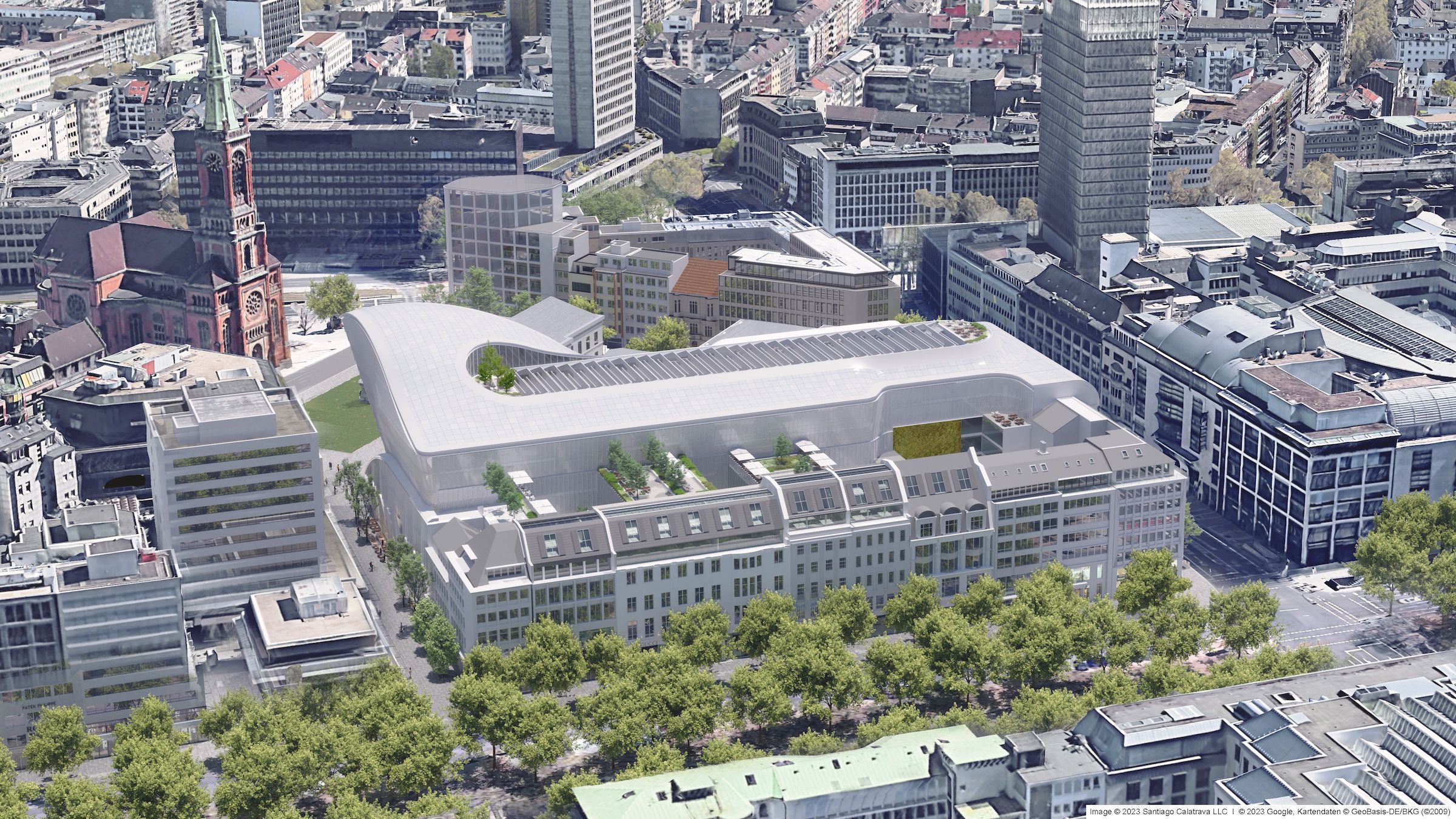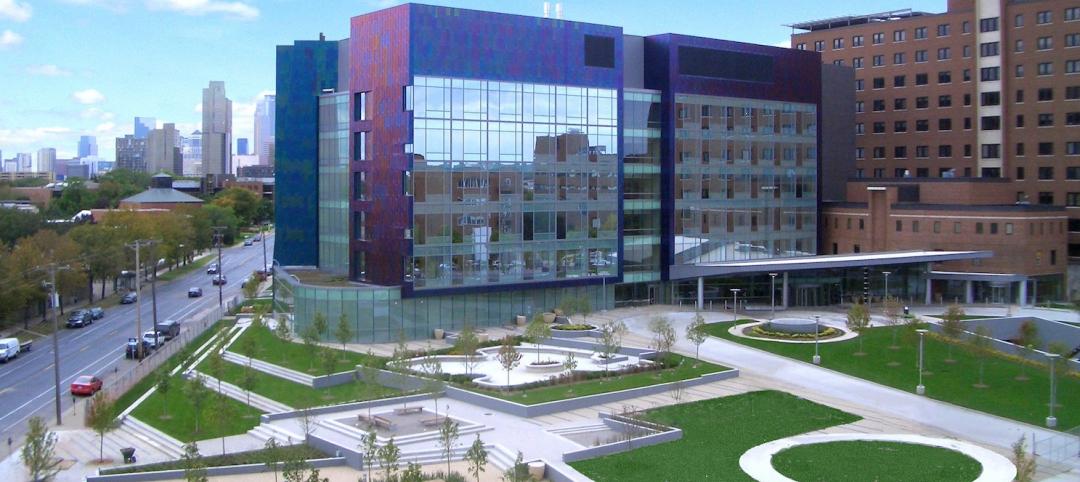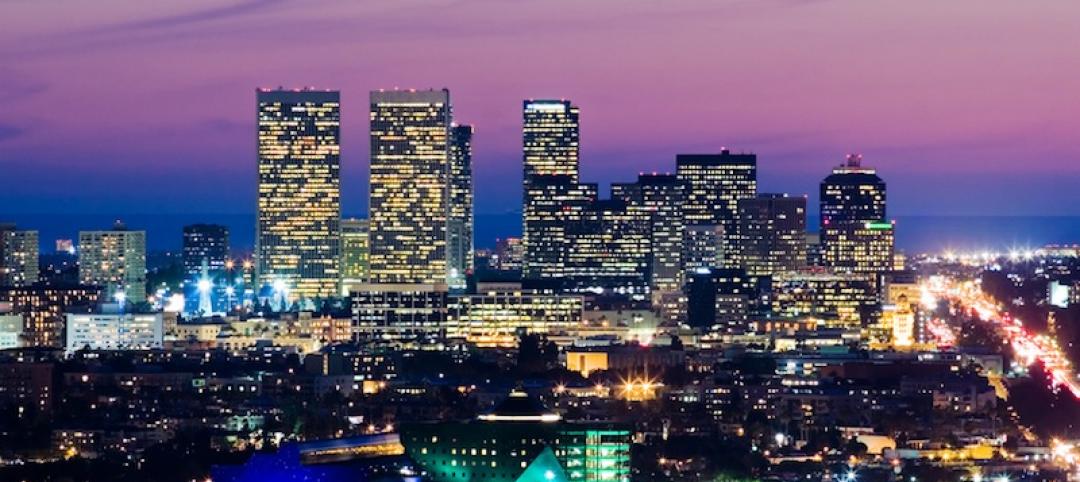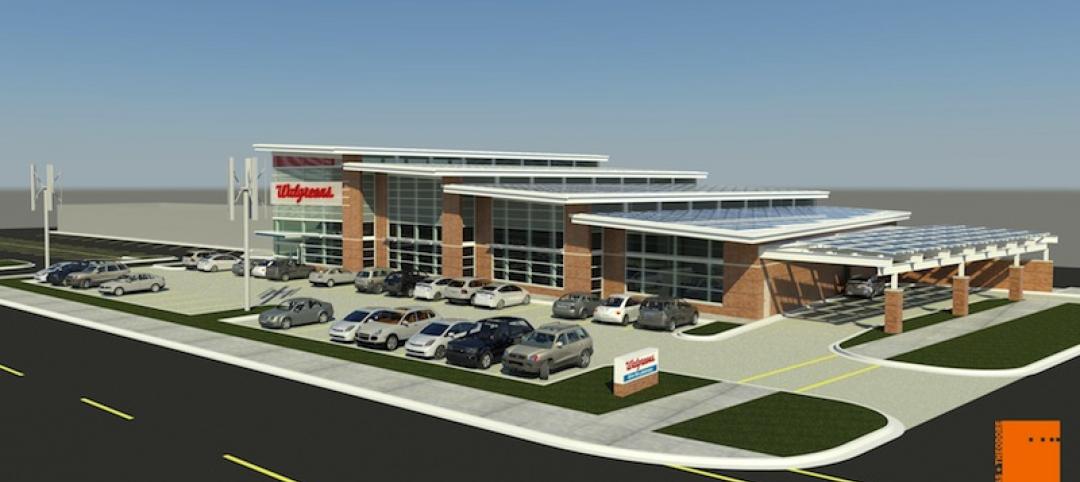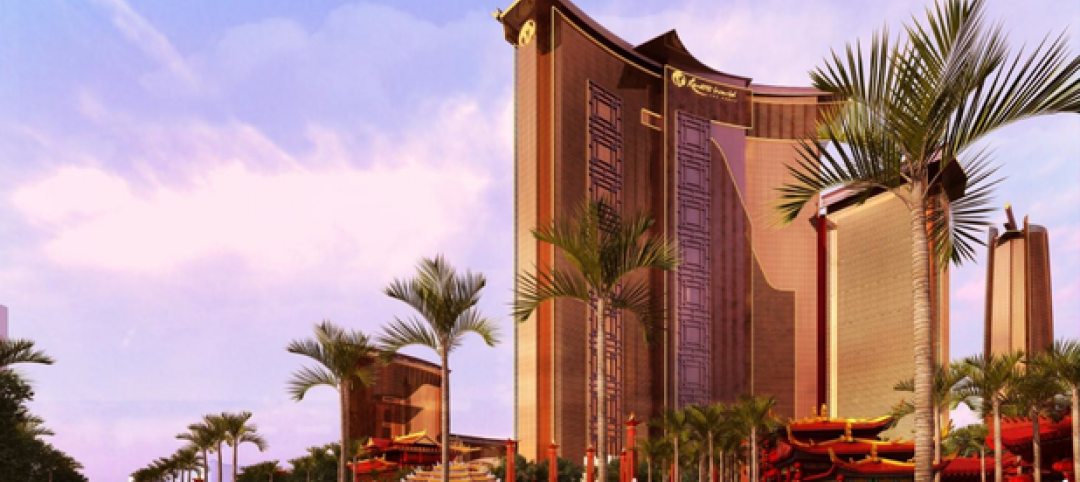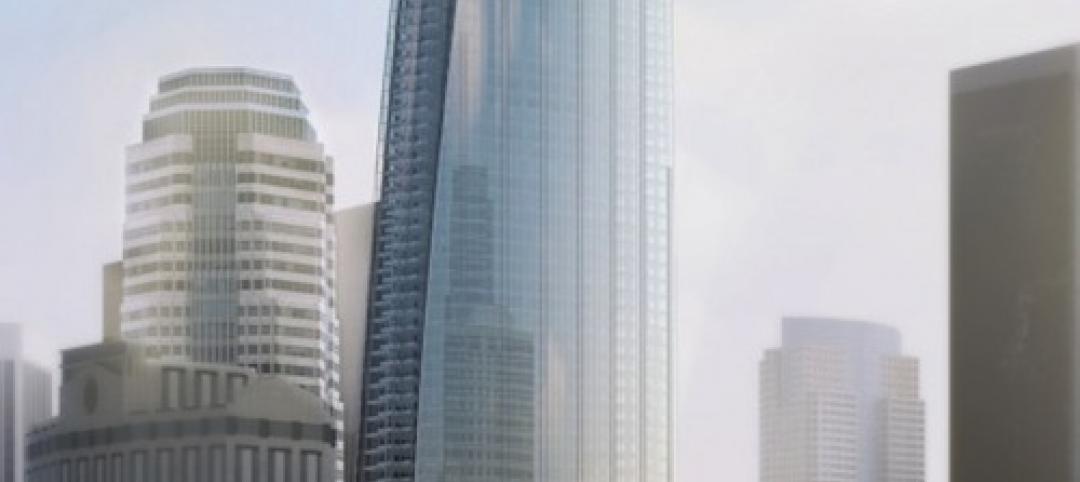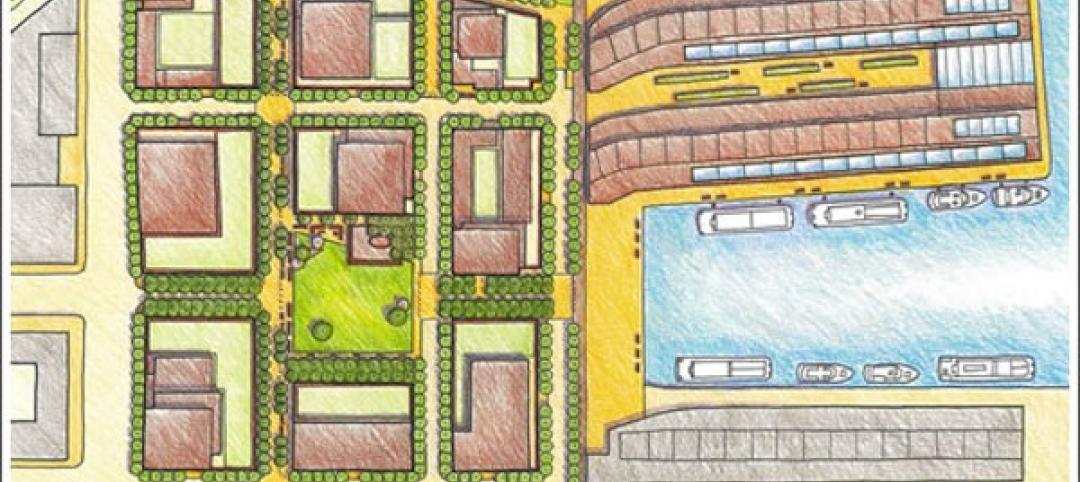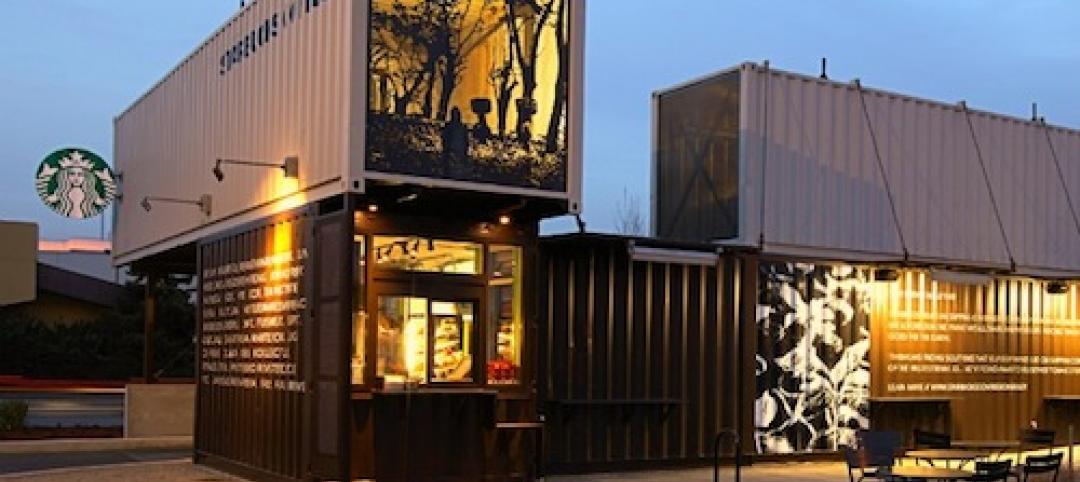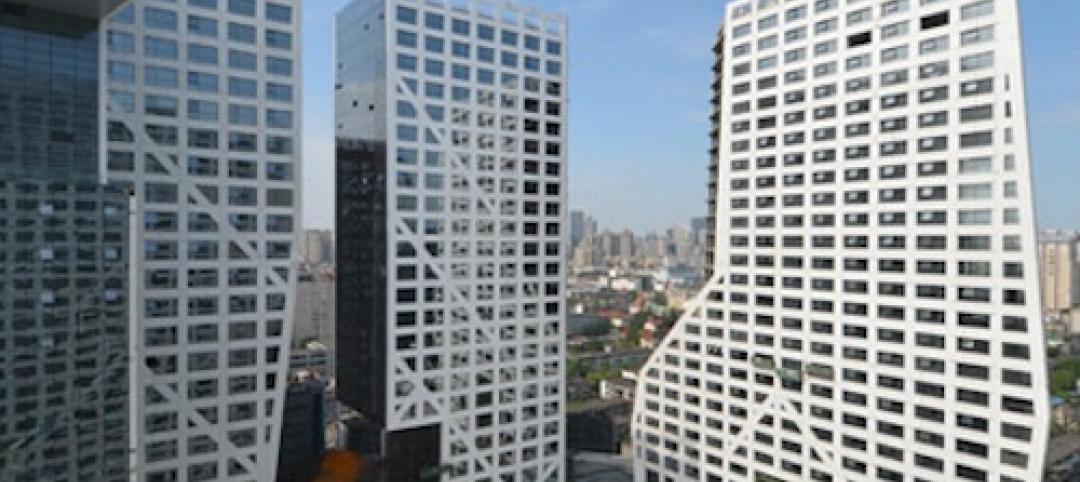Renowned architect and engineer Santiago Calatrava, along with the CENTRUM Group, has unveiled plans for Calatrava Boulevard, a luxury retail and office complex in Düsseldorf, Germany.
“Düsseldorf, with its famous Königsallee, is an elegant, cosmopolitan city with a sophisticated aura,” Calatrava said in a statement, referring to the boulevard known for its canal and high-end shopping. “Working closely with both the City Council and CENTRUM, we were able to develop a balanced and innovative solution that both preserves the distinctive and traditional character of the ‘Kö’ and creates new architectural and urban development excellence.”
Running parallel to Königsallee and connecting with the Steinstrasse station, Calatrava Boulevard will incorporate and connect to the boulevard’s existing buildings. Its inner façade will feature waveforms that sweep toward the outer façades facing Königstrasse and Steinstrasse.
RELATED: Santiago Calatrava-designed St. Nicholas Greek Orthodox Church opens in New York
The design’s centerpiece is a curved and vaulted 135-foot roof that’s lower than the typical height of high-rise buildings in the North Rhine-Westphalia state capital. As part of the project’s sustainability strategy, the landscaped roof terraces contain integrated solar panels, which also will help the city achieve its climate goals.
The first two levels of Calatrava Boulevard will provide about 160,000 sf of restaurant and retail space, with about 236,000 sf of office space on the second through eighth floors, which will preserve the Kö façades’ traditional structure. Calatrava Boulevard aims to attract top businesses and international luxury flagship stores, according to the statement.
Construction has begun on the project, which is scheduled for completion by 2028.
On the Building Team:
Owner/developer: CENTRUM Group
Design architect: Santiago Calatrava Architects and Engineers
Architect of record: BMP Architekten
MEP engineer: INGENIEURBÜRO DR. BLEIKER GmbH
Structural engineer: Santiago Calatrava Architects and Engineers
Here is the full statement from Santiago Calatrava:
On Monday, January 23, world-renowned architect and engineer Santiago Calatrava, Uwe Reppegather, Founder and Managing Director of the CENTRUM Group and Lord Mayor Dr. Stephan Keller announced the plans for Calatrava Boulevard – a sustainable, luxury building complex located on a site between Königsallee, Königstrasse and Steinstrasse in Düsseldorf, Germany. This project is a result of the close partnership between Calatrava and Reppegather meant to f create an international destination and must-see attraction.
“We are very pleased and proud to be involved in such an important project and to be able to make our contribution to sustainable urban development,” said Santiago Calatrava. “Düsseldorf, with its famous Königsallee, is an elegant, cosmopolitan city with a sophisticated aura. Working closely with both the City Council and CENTRUM, we were able to develop a balanced and innovative solution that both preserves the distinctive and traditional character of the “Kö” and creates new architectural and urban development excellence. My team and I are working on this project with the greatest of pleasure and enthusiasm and are proud to present the results of our work so far.”
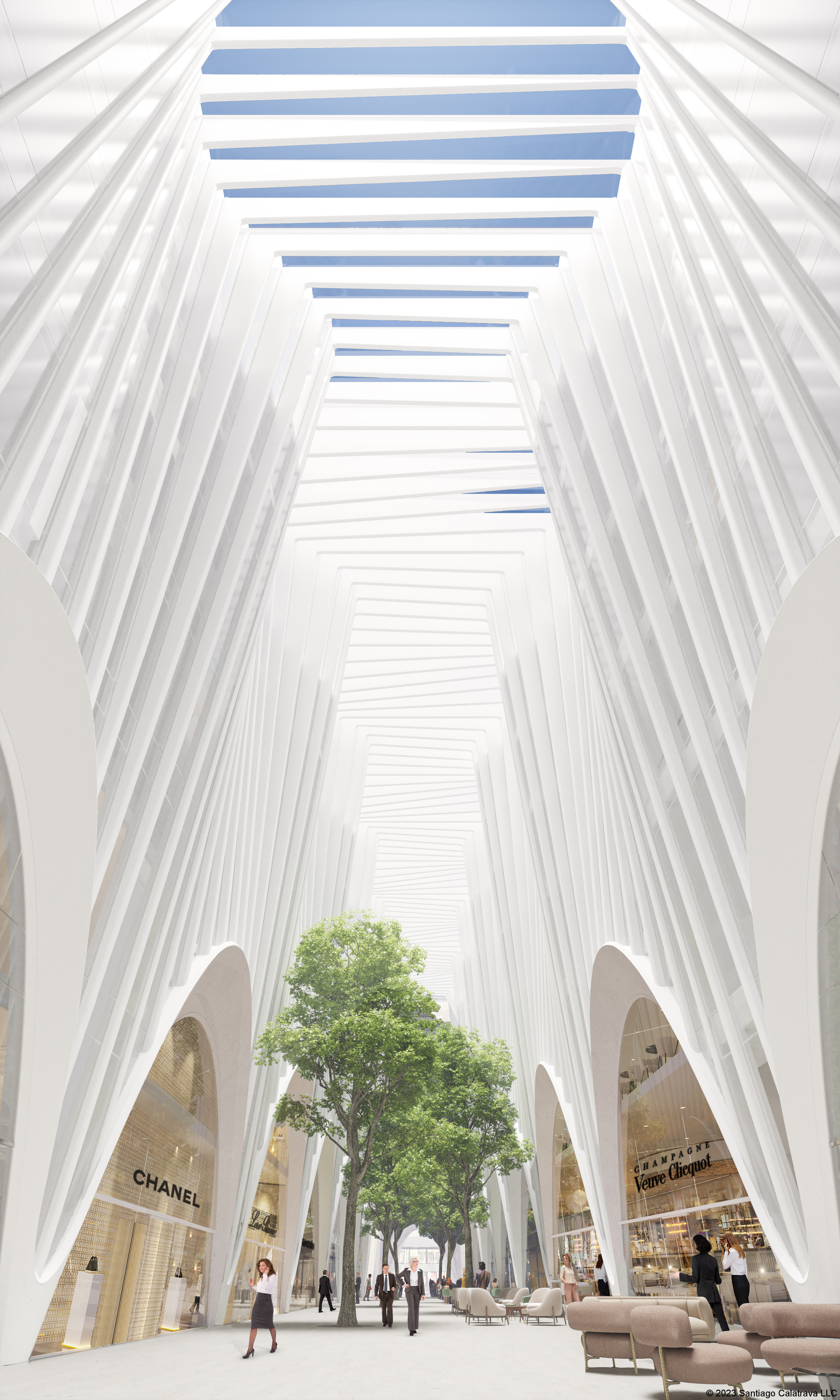
Invigorating Königsallee as an international destination
Calatrava Boulevard will modernize the space located along the Königsallee and future-proof the location, making it a prime spot for top businesses and international luxury flagship stores. The centerpiece of the design is a curved and vaulted 135-foot roof which faces Martin-Luther-Platz and remains below the typical height of high-rise buildings in the North Rhine-Westphalia state capital. The landscaped roof terraces also contain integrated solar panels, adding to the sustainability of the project and helping the city achieve its climate goals. The existing buildings fronting the Königsallee will be incorporated and connected to Calatrava Boulevard to create a seamless experience.
The first two levels of Calatrava Boulevard will offer approximately 160,000 square feet of luxury restaurant and retail space. The central axis of the main building, with its triangular footprint, provides direct access into the Boulevard, which then further connects to the office lobbies on the 2nd to 8th floors. These upper floors will house 236,000 square feet of office space and will preserve the traditional structure of the “Kö” façades.
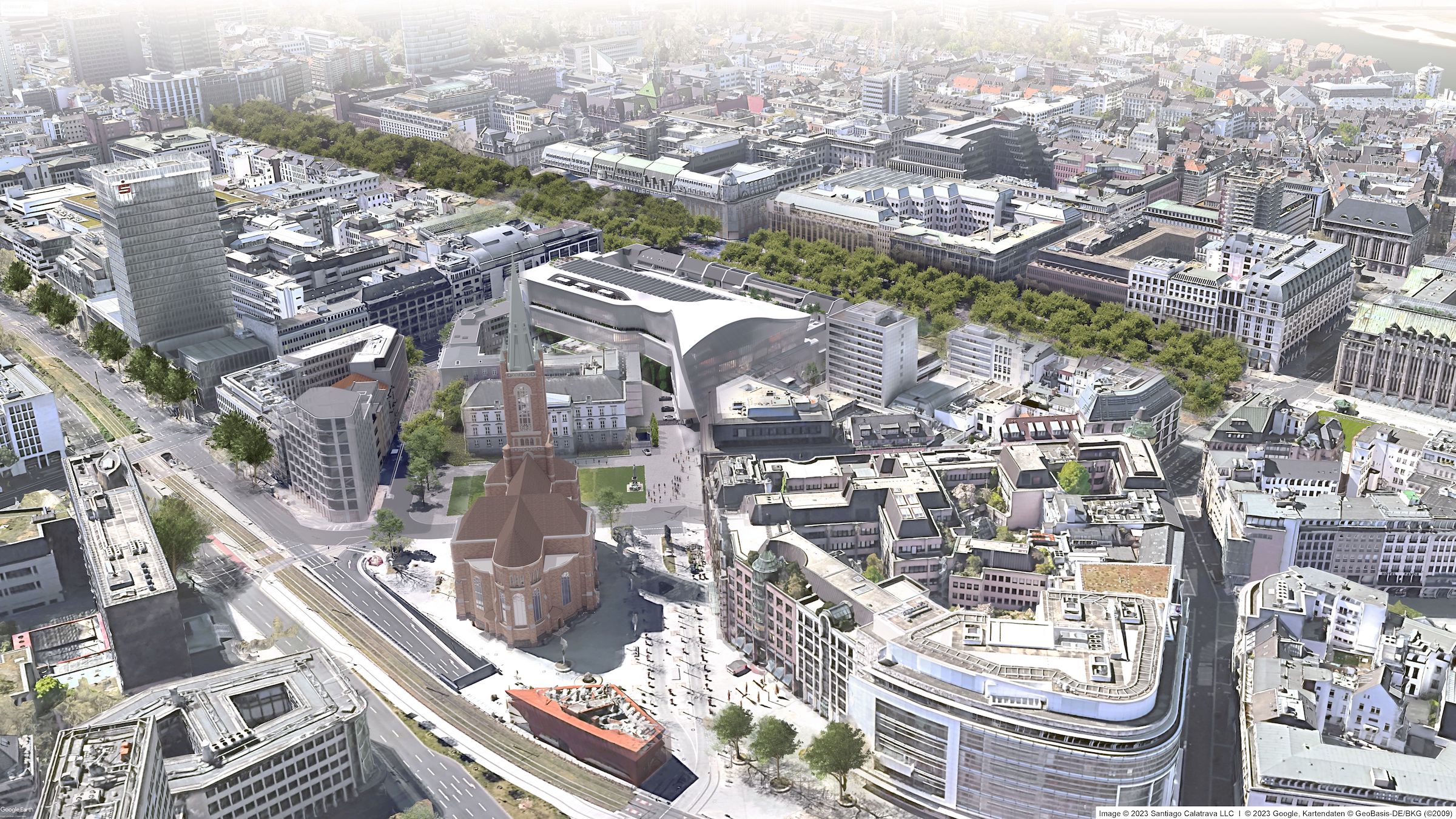
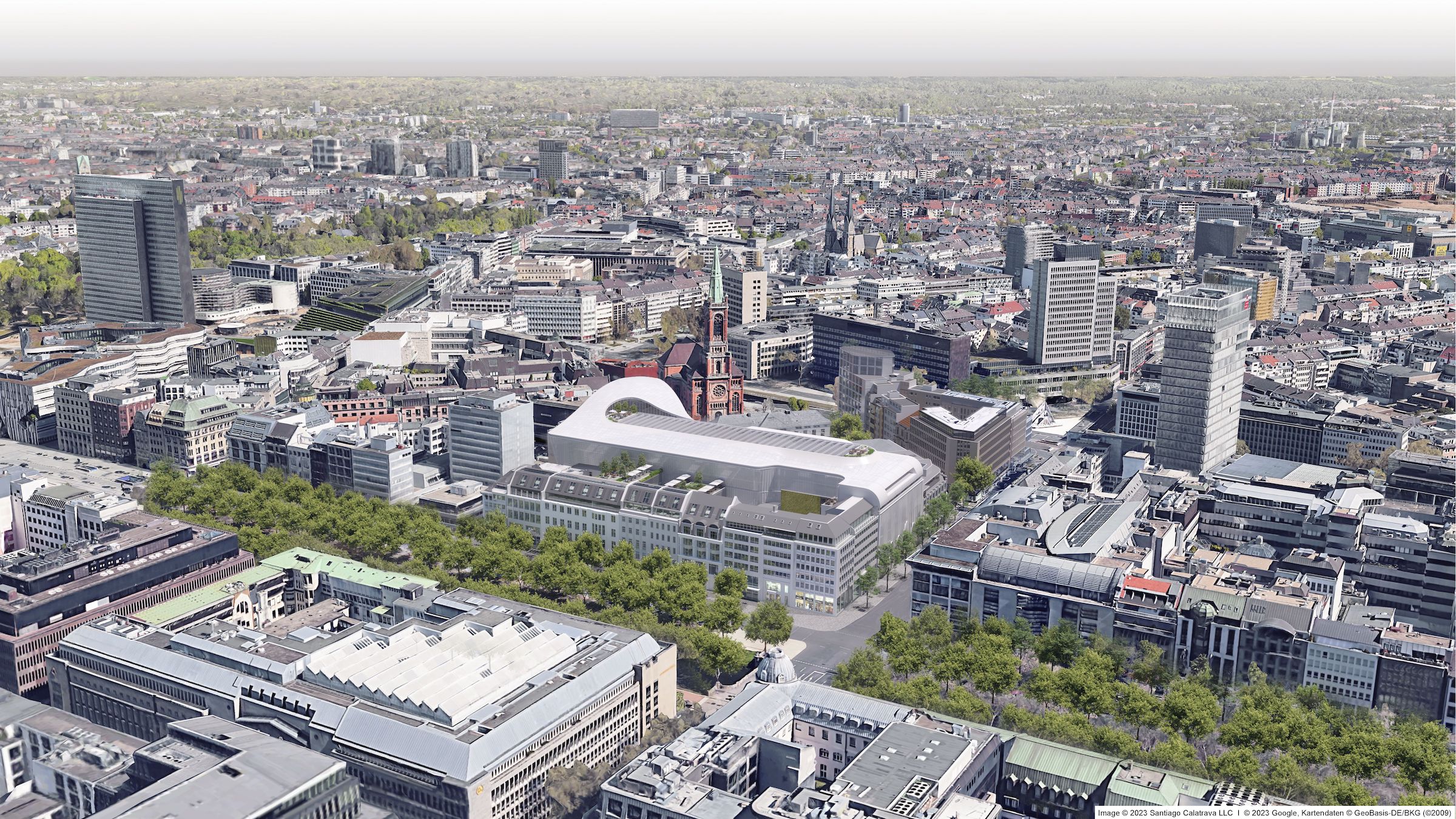
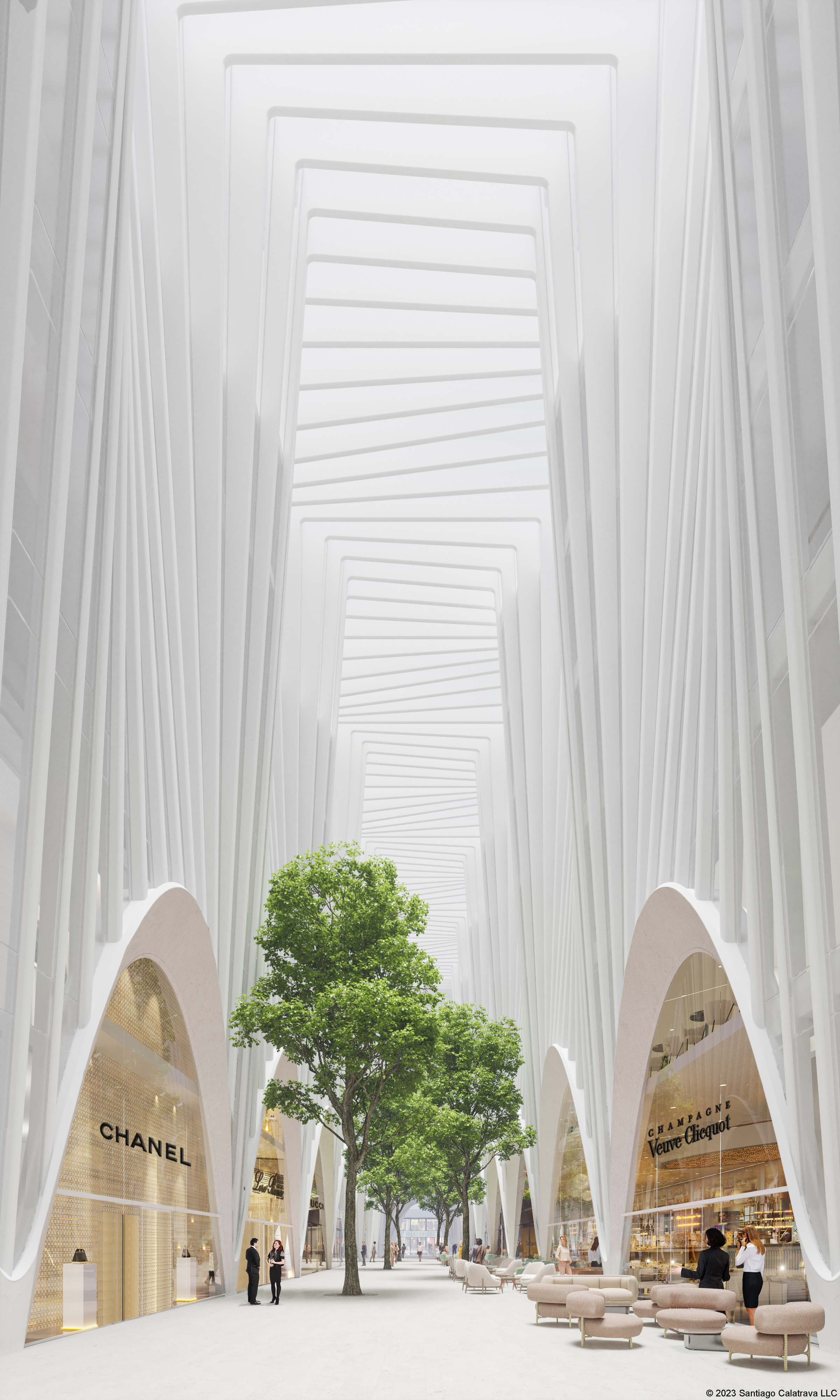
Related Stories
| Mar 15, 2013
7 most endangered buildings in Chicago
The Chicago Preservation Society released its annual list of the buildings at high risk for demolition.
| Mar 14, 2013
25 cities with the most Energy Star certified buildings
Los Angeles, Washington, D.C., and Chicago top EPA's list of the U.S. cities with the greatest number of Energy Star certified buildings in 2012.
| Mar 10, 2013
Walgreens to build first net-zero energy retail store
Walgreens announced plans last week to build one of the nation's first net-zero retail stores. The Evanston, Ill., location will utilize solar panels, wind turbines, geothermal technology, LED lighting and ultra-high-efficiency refrigeration to produce energy equal to or greater than the building consumes.
| Mar 7, 2013
Vegas rebound: Genting Group acquires assets of stalled Vegas casino-resort
International hospitality giant Genting Group has announced a deal with Boyd Gaming Corp. to purchase the land and assets, including partially built structures, of the stalled Echelon casino-resort in Las Vegas.
| Mar 4, 2013
Korean Air, AC Martin collaborating on Western region's tallest tower
The 1,100-foot Wilshire Grand will combine retail and restaurant space, offices, and a luxury hotel in the sky.
| Feb 22, 2013
Starbucks pilot program rolls out small, modular stores
Coffee giant Starbucks is rolling out mini-stores with maximum local flavor, as part of an international pilot program.
| Feb 21, 2013
Holl videos discuss design features of Chengdu ' Porosity Block' project
Architect Steven Holl has released two short films describing the development of Sliced Porosity Block in Chengdu, China.
| Feb 20, 2013
Higher standards, efficiency programs keys to 40% energy usage reduction in commercial buildings since 1980
Commercial buildings have seen a drop in their energy intensity of more than 40% since 1980, according to a recent report from Bloomberg New Energy Finance and the Business Council for Sustainable Energy.


